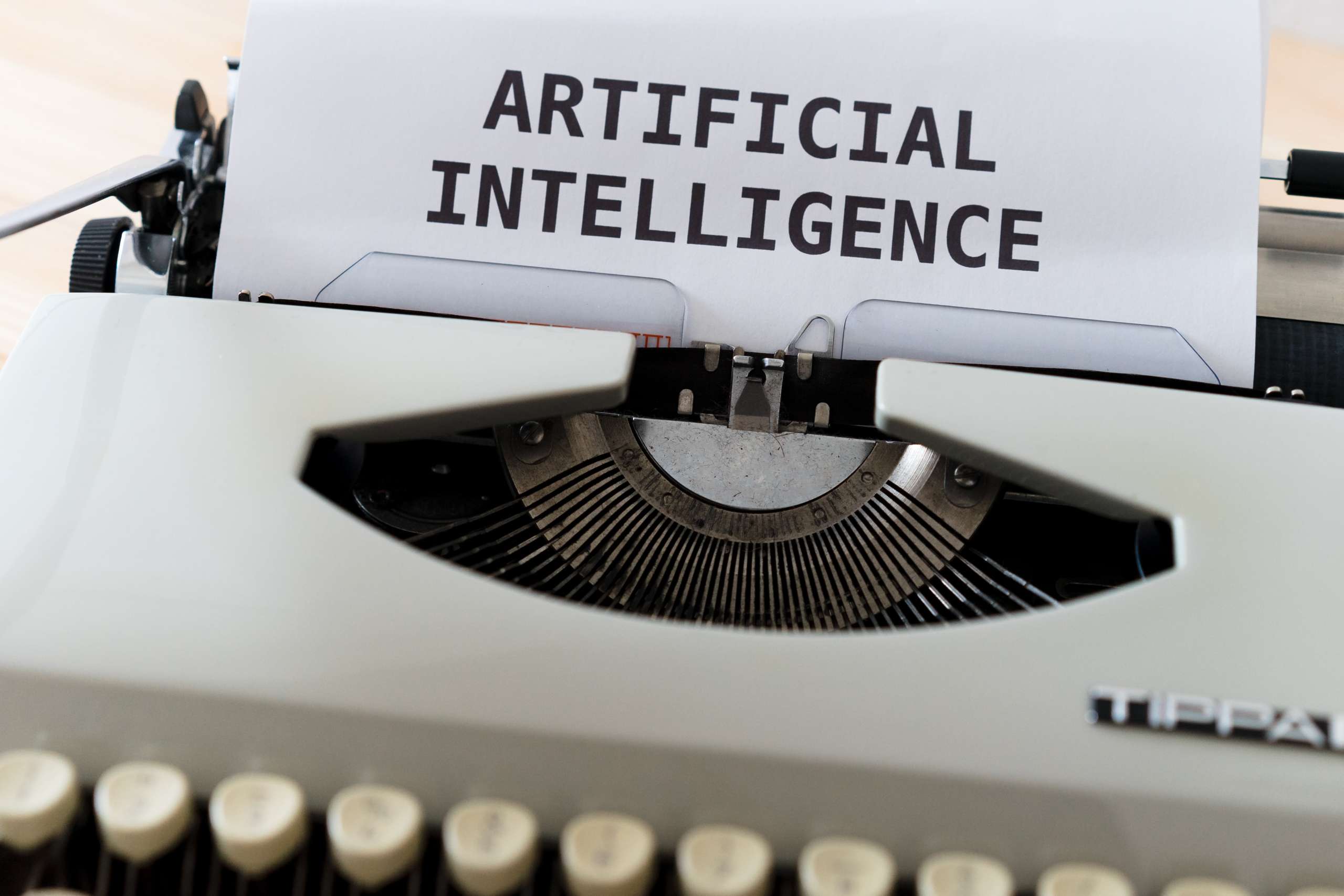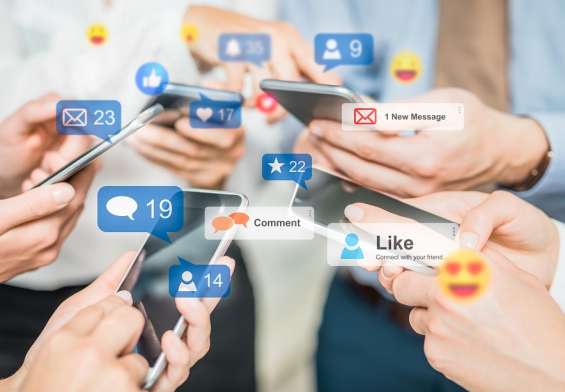Artificial Intelligence (AI) has the potential to revolutionize the digital marketing industry by providing marketers with more accurate and detailed customer insights, automating repetitive tasks, and increasing the effectiveness of marketing campaigns. With the ability to process vast amounts of data, AI can help marketers to create highly targeted and personalized marketing campaigns, automate repetitive tasks, predict customer behavior, improve the overall customer experience, enable real-time communication through chatbots, and analyze their overall return of investment. In this article, we will discuss how AI is changing the digital marketing industry in the following areas:
- Personalization
- Automation
- Predictive Analytics
- Customer Experience
- ROI Measurement
- Chatbots
Personalization
One of the most significant ways that AI is changing the digital marketing industry is through personalization. AI algorithms can analyze a large amount of data about customers, such as their browsing history, purchase history, and social media activity, to create highly targeted and personalized marketing campaigns. This allows marketers to deliver the right message to the right customer at the right time, which can increase customer engagement and conversions.
For example, an e-commerce company can use AI to analyze customer browsing history and purchase history to recommend products to customers that are most likely to be of interest to them. This can increase the chances of a sale and improve customer satisfaction. Additionally, AI can be used to personalize email campaigns by using natural language generation (NLG) to create tailored subject lines, body content, and calls-to-action. This can make the email campaigns more relevant to the recipient and increase the chances of a sale.
AI-based personalization also extends to social media marketing, where AI-based algorithms can identify the best time to post a message and the most relevant message to post. For example, an AI-powered tool can be used to automatically schedule social media posts at the best time to reach the most customers. This can increase the reach of social media campaigns and improve the chances of engagement. Personalized social media marketing can also be done by using AI to segment customer data and creating customer personas to tailor messages to specific customer groups.
In addition, personalization through AI can also be applied to website design and layout. By analyzing user behavior, AI can optimize the website design and layout to improve user experience, increase engagement and boost conversions.
Automation
Another way that AI is changing the digital marketing industry is through automation. AI algorithms can automate repetitive tasks, such as data entry, social media scheduling, and email marketing, which can save marketers a significant amount of time and allow them to focus on more important tasks, such as strategy and creativity.
For example, an AI-powered tool can be used to automatically schedule social media posts at the ideal time to reach the most customers. This can increase the reach of social media campaigns and improve the chances of engagement. Additionally, an AI-powered tool can be used to automatically send personalized follow-up emails to customers who have abandoned their shopping carts, which can increase the chances of a sale. These AI-powered tools not only automate repetitive tasks but also help marketers to optimize and improve their marketing campaigns.
AI-based automation also extends to ad optimization, where the system can automatically optimize ad campaigns based on the data it receives. This can help to improve the performance of campaigns and reduce the time spent on manual optimization. By automating ad optimization, AI can help to improve ad targeting and reduce ad spend, resulting in a higher return on investment for marketers.
Another aspect of automation through AI is the ability to automate customer service through chatbots. Chatbots can answer customer queries, solve problems, and even make suggestions 24/7, freeing up human customer service representatives to handle more complex issues.
Predictive Analytics
Predictive analytics is another key area where AI is changing the digital marketing industry. AI algorithms can analyze vast amounts of data about customers, such as their browsing history, purchase history, and social media activity, to make predictions about their future behavior. This can help marketers to identify trends and patterns that can inform their marketing strategy and improve the effectiveness of their campaigns.
For example, an AI-powered tool can be used to predict which customers are most likely to make a purchase in the near future. This can inform targeted marketing campaigns and increase the chances of a sale. Additionally, an AI-powered tool can be used to predict which customers are most likely to churn, which can inform targeted retention campaigns and improve customer retention. Predictive analytics can also be used to predict customer lifetime value, which can help marketers to prioritize their efforts and allocate resources more effectively.
Predictive analytics can also be used to optimize pricing strategies. AI algorithms can analyze data on customer demographics, purchase history, and competitors’ prices to determine the optimal price for a product or service. This can help to increase revenue and improve profitability.
Predictive analytics can also be used to optimize the targeting of ads, by analyzing customer data and identifying the most likely customer segments to convert. This can help to improve the performance of ad campaigns and reduce ad spend, resulting in a higher return on investment for marketers.
Customer Experience
AI is also changing the digital marketing industry by improving the overall customer experience. AI algorithms can analyze customer data to identify pain points and areas for improvement in the customer journey. This can help marketers to optimize the customer experience and increase customer satisfaction.
For example, an AI-powered tool can be used to analyze customer feedback and identify common issues or complaints. This can inform improvements to products or services, and can also be used to train chatbots to better handle customer queries and complaints. Additionally, AI can be used to analyze customer data to identify high-value customers, and to personalize the customer experience for these individuals.
AI can also be used to improve the customer experience by creating personalized product recommendations. By analyzing customer data such as purchase history and browsing behavior, AI can recommend products or services that are most likely to be of interest to the customer. This can increase customer satisfaction and boost conversions.
ROI Measurement
Measuring the return on investment (ROI) of digital marketing campaigns is crucial for businesses to understand the effectiveness of their marketing efforts and make data-driven decisions. AI can play a significant role in helping businesses to measure the ROI of their campaigns and optimize their marketing strategy accordingly.
One way that AI can be used for ROI measurement is through predictive analytics. AI algorithms can analyze data on customer demographics, purchase history, and competitors’ prices to determine the optimal price for a product or service. This can help to increase revenue and improve profitability. Additionally, AI can be used to predict the ROI of different marketing strategies, such as email marketing campaigns, social media ads, or influencer partnerships.
Another way that AI can be used for ROI measurement is through automation of data collection and analysis. AI algorithms can automatically collect and analyze data from different sources such as website analytics, social media, and email marketing platforms. This can help businesses to understand the effectiveness of their campaigns, identify areas for improvement, and optimize their marketing strategy accordingly.
Finally, AI can also be used for ROI measurement through optimization of the customer journey. By analyzing customer data, AI can identify pain points in the customer journey and provide suggestions for improving the overall customer experience. This can help businesses to increase customer satisfaction and improve the ROI of their marketing efforts.
Overall, AI can play a crucial role in helping businesses to measure and optimize the ROI of their digital marketing campaigns. By leveraging AI, businesses can make data-driven decisions, improve their marketing strategy, and ultimately drive more revenue and growth.
Chatbots
Finally, AI is changing the digital marketing industry by enabling real-time communication through chatbots. Chatbots are computer programs that can simulate human conversation and can be integrated into websites, apps, and social media platforms.
Chatbots can be used to answer customer queries, solve problems, and even make suggestions 24/7, freeing up human customer service representatives to handle more complex issues. This can improve the customer experience and increase customer satisfaction. Additionally, chatbots can be used to collect customer data, which can inform marketing strategy and improve the effectiveness of campaigns.
AI-powered chatbots can also be used to automate lead generation. By engaging in natural language conversations with website visitors, chatbots can identify potential customers and qualify leads, passing them on to human sales representatives for further follow-up.
Conclusion
Artificial Intelligence (AI) has the potential to revolutionize the digital marketing industry by providing marketers with more accurate and detailed customer insights, automating repetitive tasks, and increasing the effectiveness of marketing campaigns. With the ability to process vast amounts of data, AI can help marketers to create highly targeted and personalized marketing campaigns, automate repetitive tasks, predict customer behavior, improve the overall customer experience and enable real-time communication through chatbots.
In this article, we have discussed how AI is changing the digital marketing industry in the areas of personalization, automation, predictive analytics, customer experience, and chatbots. The use of AI in personalization has allowed marketers to deliver the right message to the right customer at the right time, which can increase customer engagement and conversions. Automation has allowed marketers to save time on repetitive tasks and focus on strategy and creativity. Predictive analytics has helped marketers to identify trends and patterns that can inform their marketing strategy and improve the effectiveness of their campaigns. The use of AI in customer experience has allowed marketers to optimize the customer journey and increase customer satisfaction. Lastly, chatbots have enabled real-time communication and have improved the customer experience by providing 24/7 customer service.
However, this is just the beginning of what AI can do for the digital marketing industry. As the technology continues to evolve, we can expect to see even more ways that AI is changing the digital marketing industry in the future. Some examples of future possibilities include:
- AI-powered optimization of content creation, providing personalization and automation for the creation of marketing materials.
- AI-powered virtual reality and augmented reality experiences, allowing marketers to create immersive and interactive marketing campaigns.
- AI-powered predictive analytics that can anticipate customer needs, allowing marketers to proactively offer solutions and services.
- AI-powered optimization of the entire marketing funnel, from lead generation to conversion, providing marketers with a comprehensive view of their customer’s journey.
- It’s important to note that AI is not a substitute for human creativity, strategy, and expertise. Instead, AI should be viewed as a tool to augment and enhance the work of digital marketers. As AI becomes more integrated into the digital marketing landscape, it will become increasingly important for marketers to understand and leverage its capabilities to stay ahead of the competition.
In conclusion, AI is rapidly changing the digital marketing industry, and it will continue to shape how marketers approach and engage with their customers. As the technology evolves, it will become increasingly important for digital marketers to understand and leverage AI to create more effective and personalized campaigns, improve the overall customer experience, and stay ahead of the competition.





